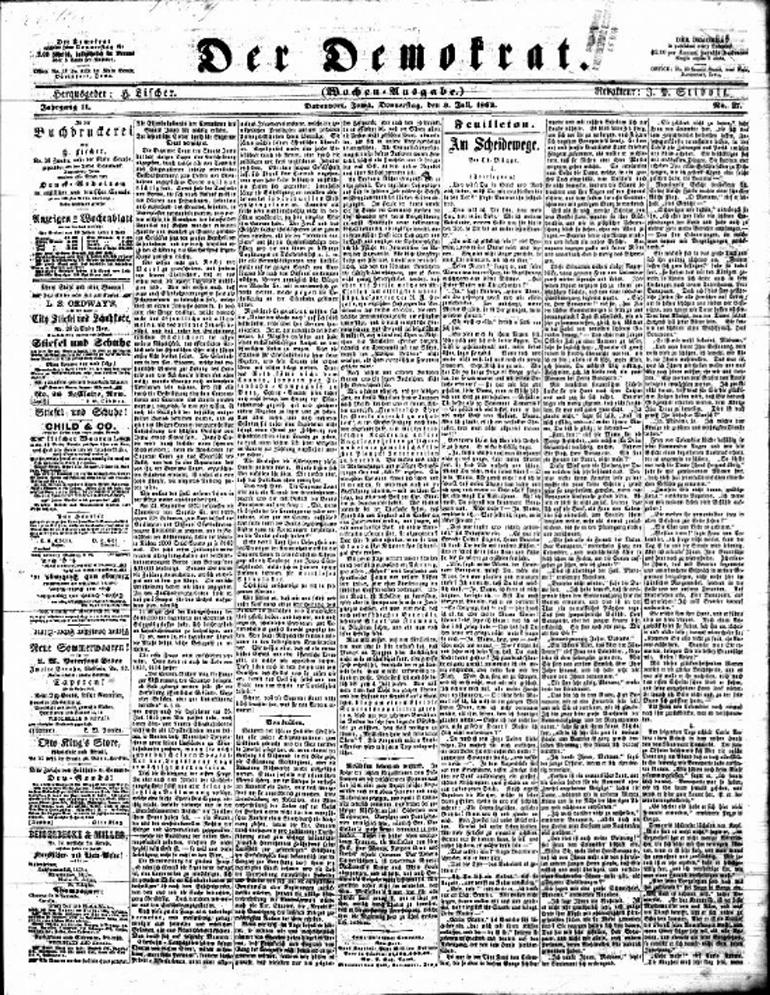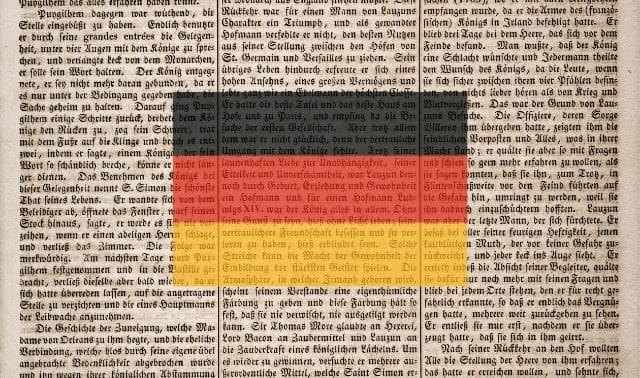Sign up for the Family Tree Newsletter Plus, you’ll receive our 10 Essential Genealogy Research Forms PDF as a special thank you!
Get Your Free Genealogy Forms
"*" indicates required fields

World War I was a real cultural teeter-totter point for Americans with German ancestry. As the conflict unfolded in Europe between 1914 and 1918, more Americans sympathized with the Allies (led by Britain, France and Russia) and less with Central Powers (topped by German and Austro-Hungarian empires). This culminated with the United States entering into the war in 1917 on the Allied side.
Those without a side
Stuck in the middle was the largest ethnic group in the US, the German-Americans. They were most commonly descendants of a “First Wave” of immigrants from German-speaking lands who had come across the Atlantic before the American Revolution.
When put together with the many “Second Wavers” (and their descendants) who came in the nineteenth and early twentieth centuries, there were millions of German ethnics in America when World War I began. Many of these German ethnics still read German-language newspapers. They spoke German in their households. They listened to sermons preached in German from their church pulpits and had their congregational records such as baptisms recorded in German.

The war on German
All this started changing quickly upon the US entry into the war. In order to “prove” their allegiance, many ethnic German churches started having services in English. Many of the German-language newspapers that were setting circulation and advertising records went into swift decline. There were burnings of German-language books. High schools that no longer offered it as a foreign language option. Names of public places were changed to eliminate those memorializing Germans.
The impact on genealogy research
What affect might all these shifts have on those doing genealogy searches for German ancestry? Here are a few things to look for:
- Because of the decline of German-language newspapers, they become less and less of a priority for research after World War I. Up until this point, such newspapers should always be checked. German town names are likely to be rendered with no or less butchering than English-language newspapers.
- Since this is the point that ethnic German churches often began keeping their record books in English, the congregations often began keeping new physical record books at this time. There’s an upside to this: Most of the German-language church registers were kept in the German cursive script handwriting. The conversion to English means the handwriting will often be easier to read.
- For those lucky enough to have personal family papers such as letters that have been preserved, more and more of these will be in English. The caveat here is that depending on the education level and ability to function between languages of the particular individual, spellings in personal papers may reflect German or English phonetics – or some combination of both.
Language skills: always valuable
The bottom line for those seeking German ancestors is that foreign language skills are usually less necessary as time moves closer to the present day. However, since our goals are usually to move further into the past, realize that learning German will always be an asset!
ADVERTISEMENT




